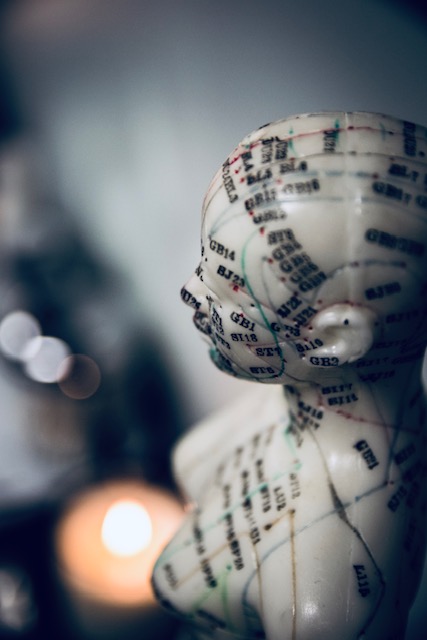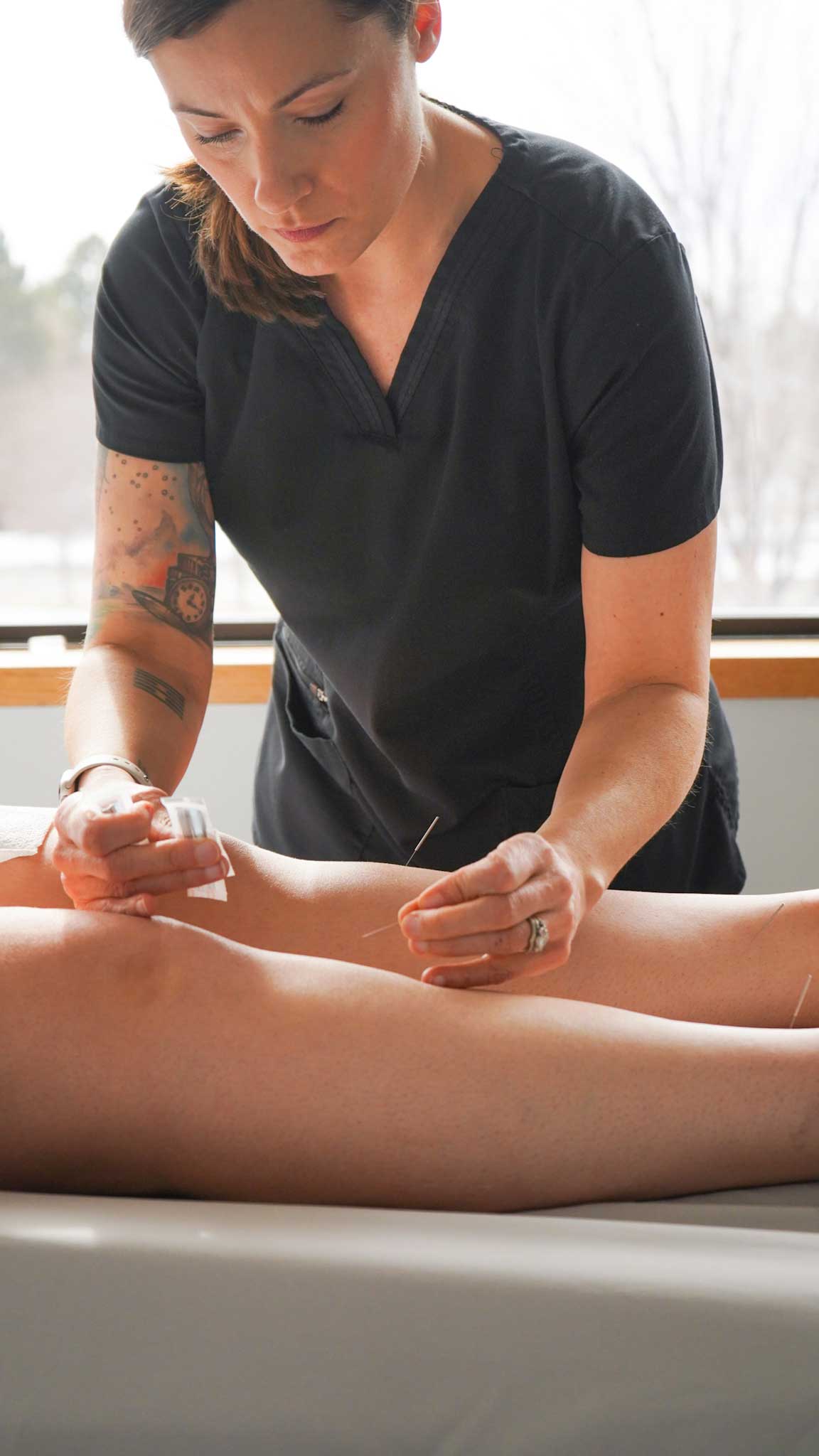Acupuncture

Why Go To An Acupuncture Clinic?
Acupuncture is an ancient form of healing that has been practiced for over three thousand years. Dating back to the Chinese Han Dynasty, it has long been used as a way to improve one’s overall health. The practice involves the insertion of thin needles at precise points on the body that help to stimulate and adjust the physiological systems in order to bring about healing. Acupuncture is known to help relieve pain, reduce stress, improve circulation and boost immunity.
Recent studies have shown that acupuncture can be effective in treating a variety of health conditions such as headaches, chronic pain, digestive issues, anxiety and depression. In addition to its physical benefits, this holistic approach can also provide emotional relief by helping to regulate moods and reducing feelings of irritability or stress. By targeting specific areas on the body, acupuncture works to promote balance within our internal systems which helps us feel more relaxed and energized physically and mentally.
In the last few decades, numerous clinical studies have shown that acupuncture can be an effective treatment for a wide range of medical conditions, including chronic pain, headaches, allergies, depression, anxiety, insomnia and digestive issues.

The National Institute of Health (NIH) and the World Health Organization (WHO) have both recognized the effectiveness of acupuncture for treating these issues. In fact, the NIH has conducted multiple studies that have found strong evidence showing that acupuncture can reduce chronic pain and improve overall quality of life. For example, one study looked at how acupuncture can reduce lower back pain in elderly patients and found that it was more effective than conventional treatments such as physical therapy and anti-inflammatory drugs.
The Food and Drug Administration (FDA) has also taken note of the growing number of research studies showing the efficacy of acupuncture in treating various physical and mental health conditions. In response to this research, they have proposed that doctors learn more about acupuncture so they can refer their patients for treatment before prescribing opioid medications for chronic pain relief. This is important because opioid medications are highly addictive and pose many risks to people’s health.
The Benefits Of Acupuncture
Acupuncture is recognized as a powerful tool in modern medicine, with top institutions like John Hopkins Medical Center and the Mayo Clinic investing time and resources into exploring its potential. Discover what these renowned medical centers have uncovered about this ancient healing practice!
- Helps to increase blood flow by causing vasodilation in our arterial system.
- Reduces inflammation
- Releases endorphins( the body’s natural pain killers)
- Relieves pain
- Improves digestion
- Increases our immune response
- Regulates our endocrine system in order to balance hormones
How Acupuncture Works?
Acupuncture has a long-standing history as part of Traditional Chinese Medicine which centers around the concept of “qi” and energy flow throughout our bodies. Yet this beautiful narrative does not fully explain what happens to us when we receive an acupuncture treatment. To understand how it can support overall wellbeing, one must look into the scientific mechanisms behind it–so let’s break it down.
The Science Of Acupuncture.
Acupuncture treatments are more than skin deep – recent research shows that these pinpoints of the body house a wealth of information about illnesses and how best to treat them. In a process known as neuro-chemical stimulation, acupuncture points interact with both the central nervous system and its peripheral pathways to release healing signals throughout our cells. These nerve receptors become painful in response to signs of ill health, but will return back once balance is restored through suitable treatment plans.
Studies suggest that acupuncture can increase the activity of vasodilation, a widening of blood vessels. This leads to an improved circulation throughout your body as nitric oxide is released from nervous fibers into smooth muscles lining arterial walls and reduces peripheral vascular resistance. As oxygen-rich blood reaches areas around needles during this process, it also helps reduce pain in those regions. In other words, by using controlled needle punctures along nerve pathways known to regulate physiology processes – such as increased flow – acupuncture has been clinically associated with enhancing overall well being.
Acupuncture has also been found to produce vasodilation, a widening of the blood vessels that can lead to increased oxygenation in targeted areas. This effect may be particularly helpful for those suffering from chronic pain or other medical conditions as it could help reduce their symptoms and improve overall well being.
Recent research has unveiled acupuncture as a viable and beneficial treatment for many common health issues. Outstanding outcomes have been reported in the German acupuncture trials , indicating that it may be twice as effective compared to traditional approaches at relieving lower back pain. Furthermore, studies show promises of improved sleep conditions among postmenopausal women who underwent such treatments.

Get to the Point! What Can Acupuncture Treat?
Acupuncture has seen a surge in popularity over the past two decades, as research demonstrates its critical role in improving various medical conditions.
- Low back pain
- Digestive disorders
- Hormonal Imbalances
- Headache/migraines
- Menstrual disorders
- Skin issues
- Anxiety, Stress, Depression
- Fibromyalgia
- Neuropathy
- Autoimmune disorders
- Myofascial pain
- Osteoarthritis
- Low back pain
- Carpal tunnel syndrome
- Asthma
Acupuncture Vs. Dry Needling
With so many questions circulating about dry needling, it’s no wonder confusion reigns. Let us simplify: Dry needling is acupuncture in its localized musculoskeletal form – a treatment used by both chiropractors, physical therapists, and of course, acupuncturists! Dry needling is used to target dysfunctional muscles for the desired result of muscle relaxation and increased blood flow within that area. All acupuncturists may choose to incorporate this style into their comprehensive patient plans, with the addition of other points away from the painful area, all to help increase efficacy of the treatment.
Frequently Asked Questions
Am I a Candidate For Acupuncture?
Acupuncture is a promising and viable means of alleviating pain for many, even when other treatments have not been effective. The medical literature has consistently reported its positive impact on the biophysical systems in our bodies, making it an option worth considering if you are suffering from chronic ailments or recurring discomfort.
How Many Acupuncture Treatments Will I Need?
The number of treatments needed differs from person to person. For complex or long-standing conditions, one or two treatments a week for several months may be recommended. For acute problems, usually fewer visits are required, and for health maintenance, we recommend monthly tune ups. As always, we recommend a consultation to assess your condition and give guidance as to what would be therapeutically effective.
How Much Does Acupuncture Cost?
Pricing will vary depending on the length of the treatment plan to achieve desired results for your condition. It is important to note that the longer you have had a condition, the more time it may take to treat. We provide free consultation to get the information needed to understand your issues, answer any questions you may have about the treatment plan, and to provide goals and expectations once you start your acupuncture treatment plan.
Is Acupuncture Covered By Insurance?
Hawthorne Acupuncture does not bill insurance directly, but many insurance plans do cover acupuncture services for pain related conditions. We recommend calling your insurance company to see if they cover Out-Of-Network acupuncture services ahead of the appointment. Be aware that every policy still adheres to specific deductibles and copays according to your specific plan. If your insurance company does cover acupuncture, we will gladly provide a superbill that includes your payment and the proper coding so you can submit it to your insurance company directly. When you submit your superbill, your insurance company will send you a check for what they will reimburse.
We do accept HSA and FSA cards and will provide you with a receipt of payment.
Does Acupuncture Hurt?
Acupuncture shouldn’t be a source of pain; if it is, your acupuncturist can make adjustments. Instead of discomfort or suffering, you may feel sensations such as heaviness that will fade quickly, an occasional slight ache for two to three minutes at most and even split second electric tingles.
What Are Acupuncture Needles Made Of?
At our clinic, we practice acupuncture with the utmost safety and hygiene. We use disposable pre-sterilized stainless steel needles to ensure patient health is never compromised. After each session, these single-use tools are disposed of according to national guidelines for clean needle techniques.
How Long Will The Appointment Take?
At your initial visit, we’ll ask a few questions about your wellbeing and lifestyle. After inserting the acupuncture needles you can take some time to relax for up to 30 minutes. Each appointment is typically between 60 minutes (first visit) or 45 minutes(follow up visits).
How Do I Prepare For My Appointment?
- Wear loose fitting comfortable clothes, some patients bring shorts/tshirt to change into. We also provide drapes for the times you are not wearing clothing that allows the practitioner to access necessary point locations on your body.
- Eat something at least 2 hours before your appointment and make sure you are hydrated. Occasionally patients may feel lightheaded if they have an empty stomach or didn’t have enough water that day. It is a rare occurrence, but we want to avoid it if we can.
- Avoid caffeine right before your appointment.
Where Are The Needles Placed?
Acupuncture is a renowned medical treatment known for its holistic approach – with 365 classical acupuncture points located on the body and ears. Depending upon your unique needs, your acupuncturist will strategically place needles in various locations; like arms, legs, back or stomach – to ensure effective healing from any particular ailment. Not all treatments will have the same points.
How Many Needles Are Used?
The misunderstood world of acupuncture is often misrepresented in media as a torturous experience, leading many to believe that it involves multiple needles placed all over the body. However, there’s no need to fear – usually only 4-15 tiny pins are used during treatment!
What To Expect After Treatment?
Following a session, many feel at ease and able to return to their day-to-day activities. We advise our patients not only take an easy pace but also ensure they stay hydrated. For those seeking relief from musculoskeletal pain, hitting the gym afterwards may be best avoided for optimal therapeutic results.
